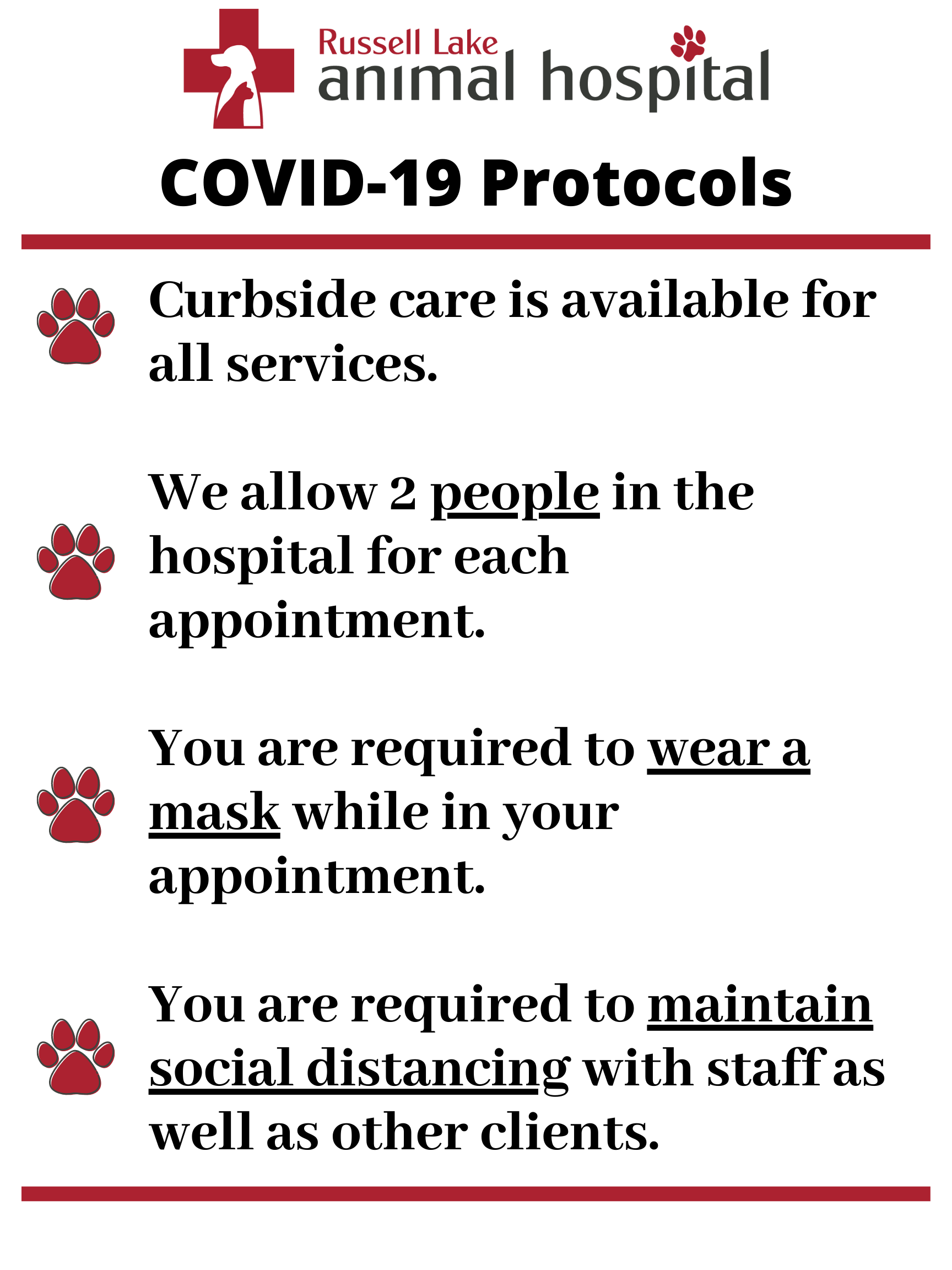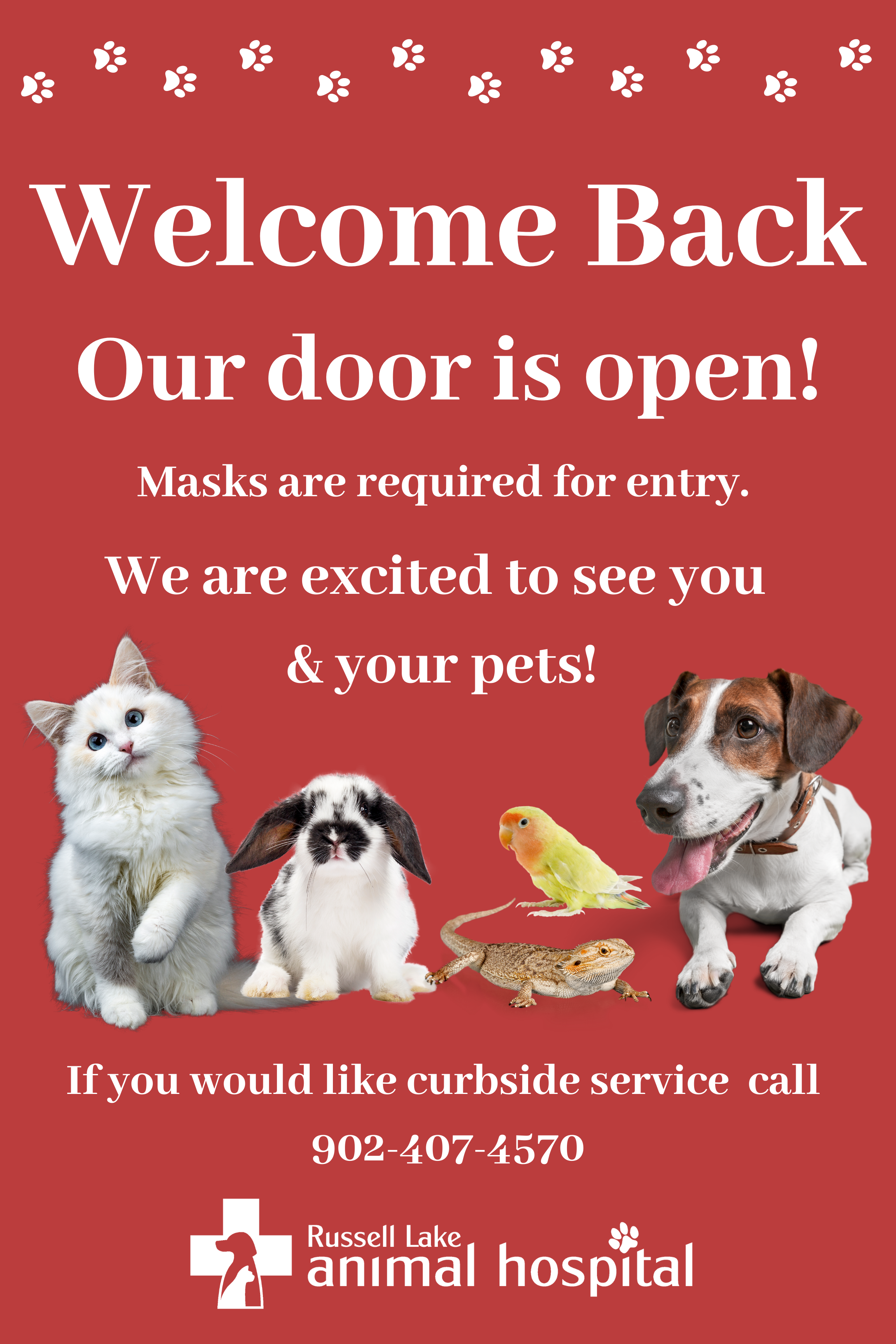COVID-19
Hospital Protocols
We want to reassure you that Russell Lake Animal Hospital is prioritizing our clients, patients, and team’s health.
Learn more about our protocols below.
Our COVID-19 policy has changed as of June 18th, 2022. We are asking all clients to abide by our updated policy in light of the pandemic.Our doors are open and masks are required for all appointments. At this time we are allowing 2 people per appointment.
If you need to cancel an appointment we require 24 hours to reschedule or cancel. A $50 cancellation fee is charged for any rescheduling or cancellations after this time.
We look forward to seeing you & your pets in person. Curbside care is available at your request.


COVID-19 Frequently Asked Questions
Source: https://www.canadianveterinarians.net/documents/covid-19-animals-faqs-veterinarians
Can my pet get infected with COVID-19?
The overall risk that most animals can become infected and develop illness, is thought to be low. However, only limited information is available and there is still uncertainty and many unknowns about how this virus will behave in various animal species. There have been no reports of livestock being infected by COVID-19 virus anywhere, but little to no testing has been conducted to date.
Are there any extra precautions I should be taking?
The human outbreak is being driven by person-to-person contact, therefore the main considerations to protect health are maintaining physical distancing, practicing proper hygiene and cleaning, and minimizing contact (both direct and indirect) with other people.
The primary measures to manage these potential risks are following basic public health prevention guidance, including:
- wash your hands after touching your pet or their food/supplies, and after cleaning up after them; do not touch your face with unwashed hands (consider wearing gloves)
- wear protective outerwear to prevent contamination of your clothes
- regularly clean and disinfect any surfaces or objects your pet touches
- minimize your pets contact with people and other animals
Can pets transmit the virus to other people or animals?
Although the virus likely originated from a wild animal host, the virus has adapted to efficiently transmit from human-to-human. There have been no reports of transmission from a domestic animal to another animal or human, despite a widespread international outbreak.
How do I minimize transmission to my pet?
Follow similar recommendations around your pet, as you would around family members in these circumstances:
- avoid close contact with your pet during the illness. Practice good hand washing and avoid coughing and sneezing on your pet
- If possible, have another member of your household care for your pet. If this is not possible, you should always wash your hands before and after touching your pet.
- limit your pets contact with other people and animals outside the household
- The greatest risk of infection by far is still from contact with infected people
- Infected people are believed to be the source of the virus reported in pets
- There are many health benefits to owning a pet, particularly during physical distancing
- There is no reason to surrender your pet at this time. It will not decrease your risk.
- There is currently no evidence that pets can spread COVID-19.

